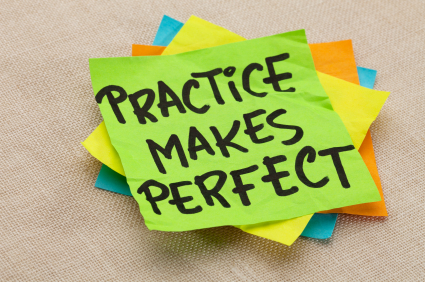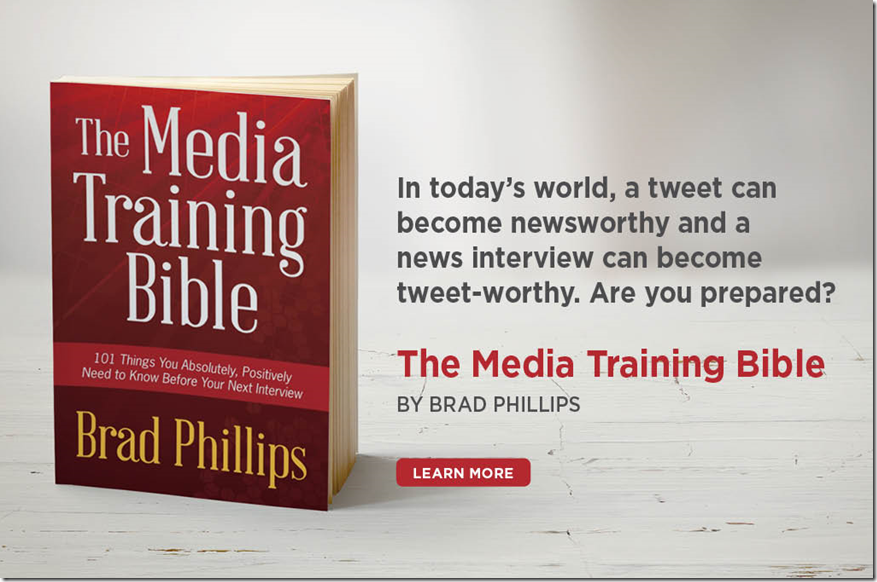How To Conduct a Practice Media Interview
This is an excerpt from my book, The Media Training Bible: 101 Things You Absolutely, Positively Need to Know Before Your Next Interview.
This lesson will teach you how to conduct an effective practice session and rate your performance. Even if the reporter has a particularly bruising deadline, try to do a quick “shortcut” version of this exercise.

Record a Practice Interview
1. Ask colleagues, friends, or family members to interview you. Give them your Q&A document so that they can ask you the questions you developed, but encourage them to ask any relevant follow-up questions they can think of. That will force you to practice answering unanticipated questions by transitioning back to your messages.
Supplement your Q&A document with a few open-ended questions (say, “Can you tell me about your company?”) and a few of the trap questions you learned earlier in the book.
2. Get your equipment ready. If you’re preparing for a television interview, record your practice run with a video camera, if possible. For radio or print interviews, you may use an audio recorder (most smartphones have a built-in audio recording device).
3. Adjust to the format of your upcoming interview. If you’re preparing for a standing television “bites” interview, for example, stand up and maintain eye contact with your friend or family member, not the camera. (Your interviewer should stand just to the side of the camera.)
4. When the interview begins, try not to break character. If you make a mistake, keep going. It’s important to learn how to recover from your mistakes, so stay in the moment and do your best to get back to surer ground.

Rate Your Performance
1. Watch or listen to the tape. Pause the playback after every answer.
2. Begin your self-critique by commenting on the things you did well—positive feedback is important—and then move on to the things you could have done better. Make sure you comment on both the quality of your message and the manner in which you delivered it.
3. After you analyze an answer, ask your colleagues, friends, and/or family members for their feedback. Proceed through the entire interview, one answer at a time, using this formula.
4. Be kind to yourself. Most people are much more critical of themselves than they should be. In media training workshops, people most frequently comment on their age, their looks, or their voice—but the audience is less likely to be distracted by such matters. There’s a reason many Academy Award—winning actors refuse to watch their own films—they are painfully self-critical and see only the flaws in their performances. The reality is that their performances were brilliant—and similarly, your performance was likely better than you think.
This article is an excerpt from The Media Training Bible: 101 Things You Absolutely, Positively Need to Know Before Your Next Interview, available from Amazon here and for the Kindle here.



